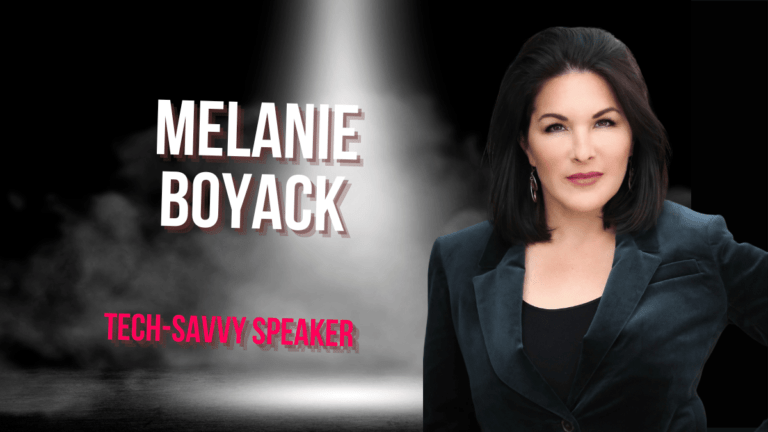As the healthcare sector faces an unprecedented demographic shift, the impending retirement of a significant portion of the nursing workforce poses both challenges and opportunities. Over the next decade, an estimated 1 million registered nurses are anticipated to retire, marking a critical transition point for individuals and the field at large. This wave of retirements underscores the need for adequate preparation strategies that address the unique demands placed on nurses throughout their careers.
In this context, the career of Hallie Schauer, a seasoned Registered Nurse (RN) with over three decades of diverse experience, offers invaluable insights into successful retirement planning. Hallie’s journey from a candy striper at St. Vincent’s Hospital in Billings, Montana, to her roles across various healthcare settings encapsulates the dedication, adaptability, and proactive planning that characterize a well-prepared retiree. Her brief retirement in 2013, followed by a return to active nursing, underscores the non-linear nature of modern retirement trajectories, particularly in demanding professions like nursing.
This paper explores the strategies that can facilitate a smooth transition to retirement for nurses, using Hallie’s experiences as a foundational narrative. By examining the challenges she faced, the methods she employed, and the roles of continuing education and volunteerism in her life post-retirement, this research seeks to provide actionable insights for nurses, healthcare administrators, and policymakers.
Challenges in Retirement Preparation
Preparing for retirement as a nurse involves navigating a complex landscape marked by personal and professional hurdles. Nurses like Hallie Schauer, with extensive and diverse experiences across various healthcare settings, face unique challenges that can complicate the transition from active service to retirement.
Physical and Emotional Wear and Tear: Nursing is a physically demanding profession that can lead to early wear and tear on the body. Long hours, night shifts, and the stress of managing patient care contribute to physical exhaustion, which can hasten the onset of retirement considerations. For Hallie, decades of working in demanding environments like surgery and oncology units meant dealing with intense physical and emotional stressors that undoubtedly influenced her decision to retire in 2013 initially.
Financial Uncertainty: Despite a career in critical care settings, many nurses need help to prepare for retirement. The variability in salary, depending on geographic location and specialization, can affect savings and retirement planning. Hallie’s career trajectory, with transitions between full-time, part-time, and voluntary roles, highlights the need for robust financial planning tailored to the irregular earnings patterns typical in nursing.
Psychological Adjustment: The transition from a highly structured daily routine to the relative freedom of retirement can be jarring for many nurses. The loss of social interactions and professional identity can lead to feelings of isolation and a diminished sense of purpose. For Hallie, re-engaging in nursing through PRN (pro re nata or as needed) work and volunteer activities provided a pathway to maintain her professional identity and social connections, which are crucial for psychological well-being in retirement.
Lack of Institutional Support: Many healthcare institutions need more structured retirement planning support for their nursing staff. Nurses often need to seek information and resources independently, which can be daunting amidst the demanding nature of their jobs. Hallie’s experience underscores the importance of institutional support in providing resources for financial planning, retirement benefits, and transition programs tailored to nurses’ specific needs.
These challenges require a multifaceted approach to planning and support, emphasizing the need for early and ongoing preparation strategies that address both the tangible and intangible aspects of retiring from nursing.
Impact of Burnout on Retirement
Burnout among nurses is a well-documented phenomenon that affects job performance and personal well-being and has significant implications for retirement planning. The emotional and physical exhaustion attributed to long-term engagement in high-stress healthcare environments can accelerate the decision to retire, sometimes earlier than financially or personally desired.
Prevalence and Impact: A study by the American Nurses Foundation found that 32% of nurses reported feeling burnt out, which is both alarming and indicative of the broader issues within the profession. For nurses like Hallie Schauer, the cumulative stress of decades in high-stakes environments such as oncology and emergency care can lead to severe burnout, influencing both the timing and nature of retirement.
Burnout and Early Retirement: Burnout can push nurses towards early retirement as the job demands become unsustainable. Hallie’s decision to retire briefly in 2013 was influenced by the need to recuperate and reassess her capacity to contribute to the profession, highlighting how burnout can lead to temporary or permanent withdrawal from the workforce.
Financial Ramifications: Early retirement due to burnout also has financial ramifications. Nurses may find themselves retiring without adequate financial preparation, leading to economic difficulties in later years. The challenges are compounded by potential health issues related to the job’s long-term stress and physical demands, increasing medical costs and impacting overall quality of life during retirement.
Strategies to Mitigate Burnout: Addressing burnout effectively involves individual and systemic changes. Institutions can implement better staffing policies, provide more comprehensive support systems, and foster a workplace culture that promotes work-life balance. Individually, nurses can seek professional help, set boundaries, and prioritize self-care. Hallie’s return to nursing on a PRN basis and her involvement in non-stressful, fulfilling activities like volunteering at the Welch Cancer Center are examples of how active engagement in less demanding roles can help manage burnout symptoms and extend a nurse’s career.
By understanding the pivotal role of burnout in shaping retirement decisions, stakeholders can better support nurses in transitioning to retirement at a pace that suits their personal and financial needs.
Strategies for a Smooth Transition into Retirement
A smooth transition into retirement for nurses involves proactive planning and strategic actions that address the practical and psychological aspects of moving away from a career in active healthcare. For nurses like Hallie Schauer, who have experienced both the intense demands of nursing and the challenges of burnout, thoughtful preparation is crucial for a fulfilling retirement.
Financial Planning: Effective retirement planning starts with sound financial management. Nurses should start saving early in their careers and take advantage of retirement accounts and employer-sponsored pension plans. Consulting with a financial advisor can help navigate the complexities of retirement savings, especially for those with varied income levels throughout their careers, as seen with Hallie.
Healthcare Considerations: Given the physical demands of the nursing profession, maintaining good health into retirement is essential. Nurses should ensure comprehensive health insurance and plan for potential long-term care needs. Regular health check-ups and focusing on preventive care can mitigate health issues that complicate retirement.
Emotional and Social Preparation: Transitioning from a career that often defines one’s identity to retirement can be challenging. Nurses can prepare for this change by cultivating hobbies and social networks outside of work, as Hallie has done with her involvement in community and recreational activities like golf. This helps maintain a sense of community and purpose.
Phased Retirement Options: Exploring opportunities for phased retirement can provide a smoother transition for those not ready to leave the workforce. Working part-time or per diem, as Hallie did when she returned to nursing at the Welch Cancer Center, allows retirees to gradually reduce their workload while staying engaged and active in the field.
Mental Health Support: Addressing mental health is as essential as managing physical health. Engaging in stress-relief activities, seeking therapy if needed, and maintaining a healthy work-life balance are crucial strategies for managing the psychological stresses of nursing and preparing for a mentally healthy retirement.
By implementing these strategies, nurses like Hallie can navigate the transition to retirement more effectively, ensuring they retire with financial security and a plan for ongoing engagement and fulfillment in their post-career lives.
Role of Continuing Education and Volunteerism
Continuing education and volunteerism play crucial roles in enriching the retirement life of nurses, offering avenues for personal growth, community engagement, and ongoing professional involvement. Hallie Schauer’s post-retirement activities provide a prime example of how these elements can be integrated into a retired nurse’s life to maintain a sense of purpose and fulfillment.
Continuing Education: Even in retirement, the thirst for knowledge need not wane. Continuing education can take many forms, from formal coursework to informal learning opportunities. For retired nurses like Hallie, staying updated with medical advancements through workshops or online courses can provide intellectual stimulation and a connection to the ever-evolving healthcare field. This enriches their knowledge and enables them to volunteer or work part-time with a current understanding of best practices.
Benefits of Volunteerism: Volunteer work offers retired nurses the opportunity to give back to the community while utilizing their skills and experience. Hallie’s volunteer work at the Welch Cancer Center illustrates how retired nurses can continue to impact patient care and support services in a less demanding role. Volunteerism helps maintain a professional identity and social connections, vital for psychological well-being after retirement.
Impact on Lifestyle and Well-being: Engaging in educational and volunteer activities helps retired nurses like Hallie maintain a structured lifestyle, reducing the risk of social isolation and depression that can accompany retirement. It also promotes a healthy, active lifestyle, which is crucial for aging.
Networking and Mentorship Opportunities: Continuing education and volunteerism provide substantial networking opportunities. Retired nurses can connect with peers, mentor younger professionals, and influence policy through advocacy and community involvement. These activities reinforce their role in the nursing community and provide avenues for continued influence and legacy building.
Personal Development: Lastly, continuing education and volunteerism offer significant opportunities for personal development. They allow retired nurses to explore new interests or deepen existing ones, essential for a satisfying and dynamic retirement.
Incorporating continuing education and volunteerism into retirement planning enhances the quality of life for retired nurses and ensures they continue to contribute meaningfully to the community and their profession.
Policy and Support Systems
Effective policy and support systems are crucial for assisting nurses like Hallie Schauer to transition smoothly into retirement. These systems help address financial and health-related concerns and support the psychological and social aspects of moving from active work life to retirement.
Institutional Retirement Planning Programs: Healthcare institutions should offer comprehensive retirement planning programs that address retiring nurses’ financial and emotional needs. These programs could include financial management seminars, post-retirement health insurance discussions, and lifestyle adjustment workshops. Such proactive support can alleviate many nurses’ anxiety about retirement and provide them with the tools necessary to plan effectively.
Enhanced Pension and Benefits: Policies that offer robust pension schemes and benefits tailored to the needs of long-serving healthcare professionals can significantly ease the financial burden of retirement. Institutions could consider options like matching 401(k) contributions or offering early investment opportunities to help nurses build a secure retirement fund throughout their careers.
Flexible Retirement Options: To accommodate nurses’ diverse needs and preferences, healthcare institutions should implement flexible retirement options. These include phased retirement plans, allowing nurses to gradually reduce their hours while maintaining some level of professional engagement. Such flexibility helps nurses transition at their own pace and adjust better to the retirement lifestyle.
Health and Wellness Programs: Continuing the provision of health and wellness programs into retirement is vital for sustaining the long-term health of nurses. These programs should focus on physical health, such as access to fitness facilities, regular health screenings, and mental health, including counseling and support groups tailored to retirees.
Support for Volunteer and Educational Pursuits: Encouraging retired nurses to stay involved through volunteer roles or continuous learning can be facilitated by policies that provide access to educational resources, volunteer placement services, and even incentives for participation in community health initiatives.
Advocacy and Representation: Finally, nursing associations and professional bodies should advocate for policies that recognize and support the unique needs of retiring nurses. Representation in policy discussions can ensure that the voices of nurses are heard in legislative arenas, influencing decisions that affect their retirement and overall well-being.
By strengthening these support areas, healthcare institutions can ensure that nurses like Hallie Schauer have a well-rounded and supported transition into retirement, benefiting the nurses and the broader community by continuing to leverage their expertise and dedication.
Conclusion
This research paper has explored the multifaceted challenges and strategies associated with preparing for retirement as a nurse through the detailed case study of Hallie Schauer. Hallie’s extensive and varied career, marked by dedication and resilience, provides a rich context for understanding the complexities facing nurses as they approach retirement.
The challenges discussed, including physical and emotional wear and tear, financial uncertainty, and psychological adjustments, highlight the need for comprehensive planning and institutional support. Furthermore, burnout has been shown to significantly influence retirement decisions, necessitating a proactive approach to mental and physical health maintenance throughout a nurse’s career.
Strategies for a smooth transition into retirement have been identified, focusing on financial planning, health care considerations, emotional and social preparation, phased retirement options, and continued engagement through volunteerism and education. These practical strategies ensure that nurses can retire with dignity and continue to lead fulfilling lives.
Institutions have a crucial role to play in facilitating these transitions. Enhanced support systems, flexible retirement options, robust health and wellness programs, and strong advocacy are necessary to address the unique needs of retiring nurses. These measures will benefit the nurses and enrich the healthcare system by retaining experienced professionals in various capacities.
Recommendations:
- Healthcare Institutions: Implement comprehensive retirement planning programs and flexible retirement options to accommodate individual needs.
- Nursing Associations: Advocate for policies that support the retirement needs of nurses, including better pension schemes and benefits.
- Individual Nurses: Engage in early financial planning, maintain physical and mental health, and seek continuing education and volunteer opportunities to enrich retirement.
Hallie Schauer’s experience highlights how important it is for the nursing profession to provide support and resources to nurses as they transition into new phases of their lives. The nursing profession can help its members thrive and succeed by focusing on these areas.









